Are you considering a college transfer but unsure where to begin? Navigating the transfer application process can feel daunting, but with the right guidance, it can be a smooth journey. In this article, we'll provide you with a clear and insightful letter template to help you articulate your reasons for transferring and showcase your strengths. Let's dive in and explore how you can present your best self in your application!
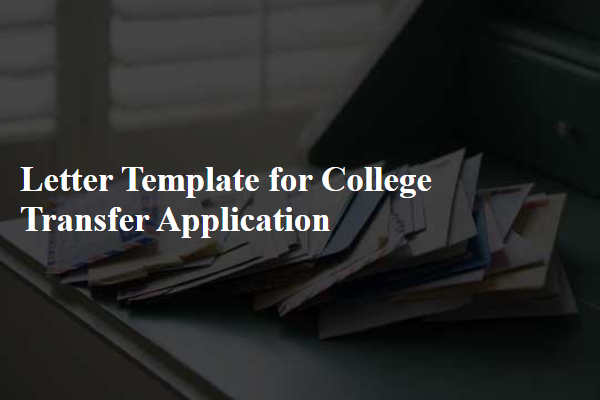
Personal motivation and reasons for transfer
Deciding to transfer colleges represents a pivotal moment in an academic journey, often driven by personal aspirations and the quest for optimal educational environments. The desire for enhanced academic offerings, such as specialized programs in Environmental Science at institutions like Stanford University, serves as a foundational motivation. Additionally, seeking a diverse campus community that fosters collaboration among students from various cultural backgrounds, seen at universities like the University of California, Los Angeles (UCLA), enhances personal growth and perspective. A transition may also stem from the need for more dynamic extracurricular opportunities, such as leadership roles in environmental advocacy organizations or hands-on internships in nearby national parks, allowing for practical application of one's academic interests. Ultimately, a transfer is driven by the pursuit of a holistic and enriching college experience tailored to individual goals and aspirations.
Academic achievements and records
Achieving academic excellence is crucial for college transfer applications, particularly for maintaining competitive GPAs, which often need to be above 3.5 to meet the criteria of many institutions. Transcripts should highlight outstanding coursework, such as Advanced Placement (AP) or International Baccalaureate (IB) classes, demonstrating rigorous academic engagement. Recognition through scholarships, Dean's List honors, or other academic awards showcases commitment and success within the educational environment. In addition, standardized test scores (e.g., SAT or ACT) play a pivotal role, with top percentiles supporting the narrative of strong academic ability. Extracurricular participation in honor societies or subject-related clubs further emphasizes dedication to one's field of study, strengthening the overall academic profile for prospective colleges.
Intended major and educational goals
In the competitive landscape of higher education, I aim to pursue a Bachelor's degree in Environmental Science, focusing on sustainable practices and conservation methods. My educational goals include developing a comprehensive understanding of ecological systems, engaging in hands-on research projects by collaborating with local organizations such as the Nature Conservancy, and participating in internships that address climate change impacts in metropolitan areas like New York City. I aspire to deepen my knowledge about environmental policy, aiming for a future career that combines advocacy and scientific research, ultimately contributing to preserving biodiversity and promoting sustainable communities.
Compatibility with target institution's values and offerings
Compatibility with a target institution's values and offerings significantly influences a student's decision to transfer. For instance, a college's commitment to sustainability may resonate with students passionate about environmental conservation, leading to active participation in initiatives such as campus clean-ups or green energy projects. Additionally, institutions that prioritize innovative teaching approaches, such as experiential learning or interdisciplinary studies, attract students seeking hands-on experience that aligns with their career goals. The presence of specific programs, like unique study abroad opportunities or renowned faculty members in a particular field, can further enhance a student's educational journey. Engaging with community service requirements may also attract students who value civic responsibility and social impact, fostering a sense of shared mission within the campus culture. By matching personal values with institutional offerings, students can create a more fulfilling and aligned academic experience.
Extracurricular involvement and contributions
Active participation in extracurricular activities enhances personal growth and strengthens community bonds at educational institutions. At Greenfield University, the Debate Club fostered critical thinking skills while engaging in rigorous competitions throughout the 2022-2023 academic year, culminating in a state-level championship. Volunteering at the local food bank, part of the Community Service Initiative, enabled over 200 hours dedicated to addressing food insecurity, impacting countless families in the Springfield area. Additionally, serving as the President of the Student Government Association facilitated leadership development and improved campus life, implementing sustainable practices that reduced carbon emissions by 15%. Each of these experiences contributed to a multifaceted perspective and reinforced a commitment to social responsibility.
Letter Template For College Transfer Application Samples
Letter template of college transfer application for academic improvement
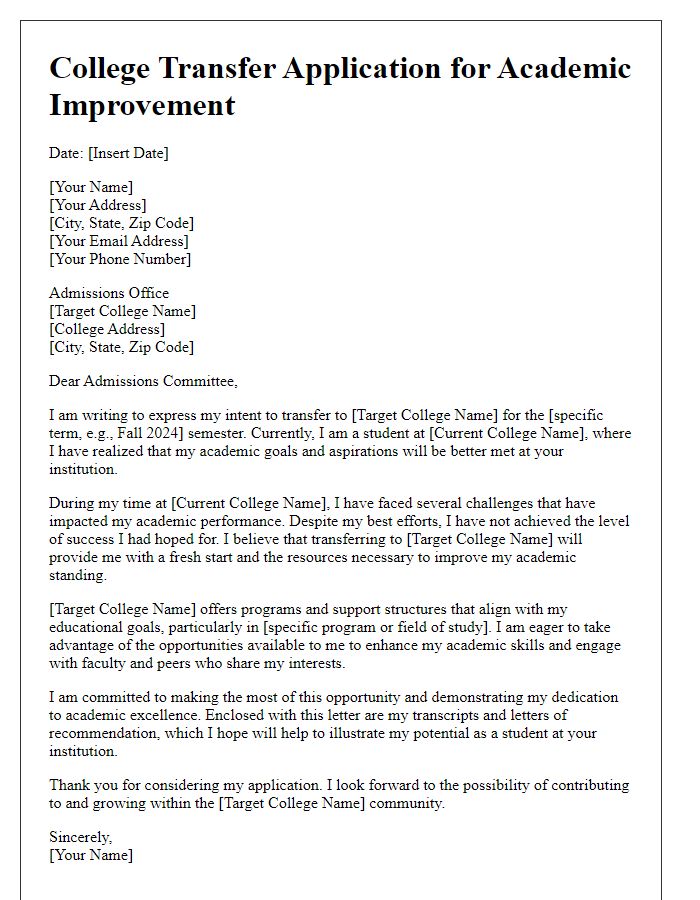
Letter template of college transfer application citing financial concerns
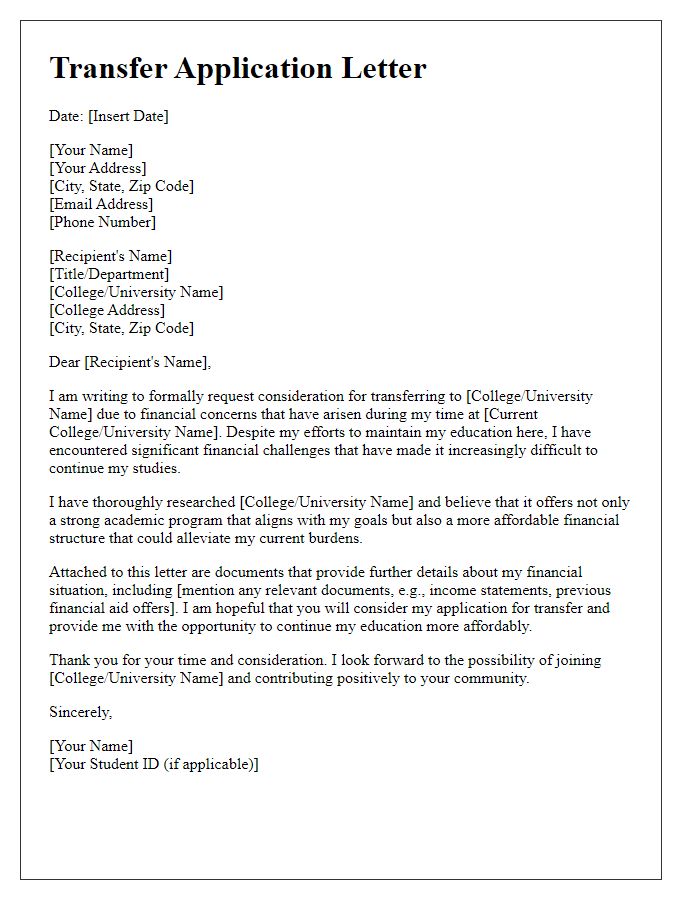
Letter template of college transfer application addressing social environment
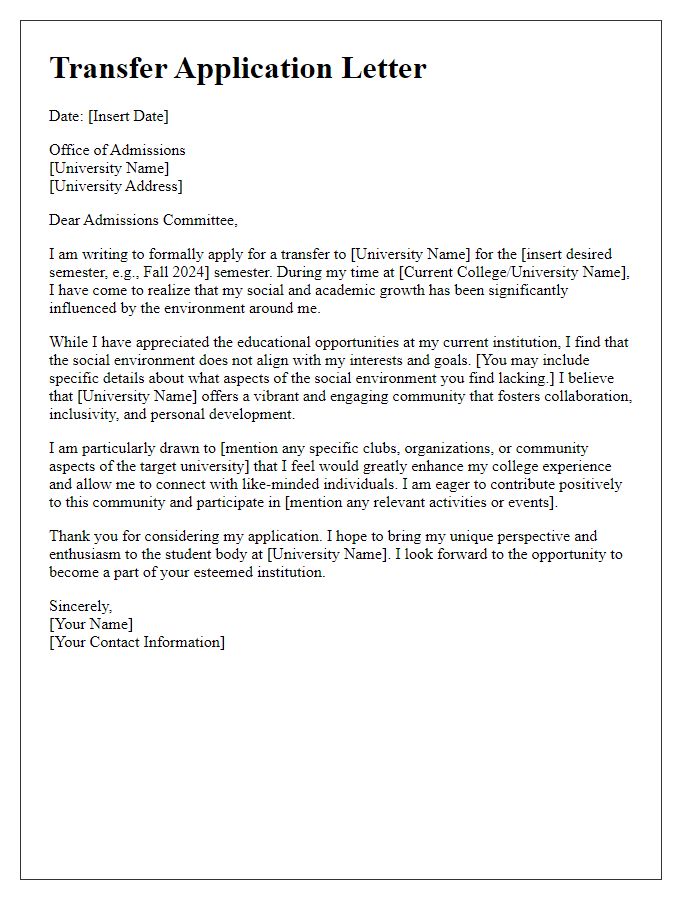
Letter template of college transfer application due to campus facilities
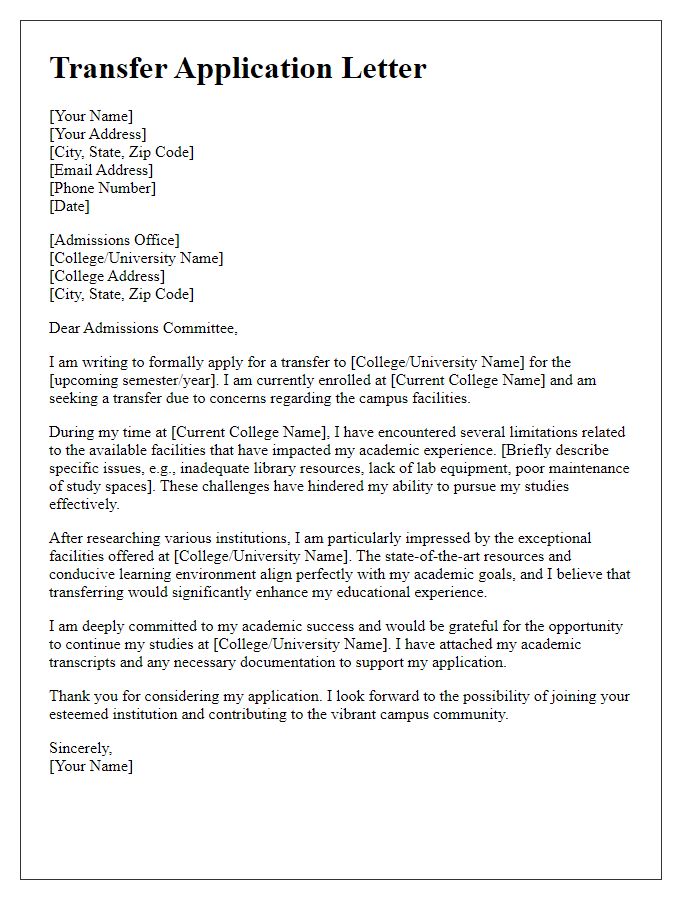
Letter template of college transfer application highlighting extracurricular opportunities
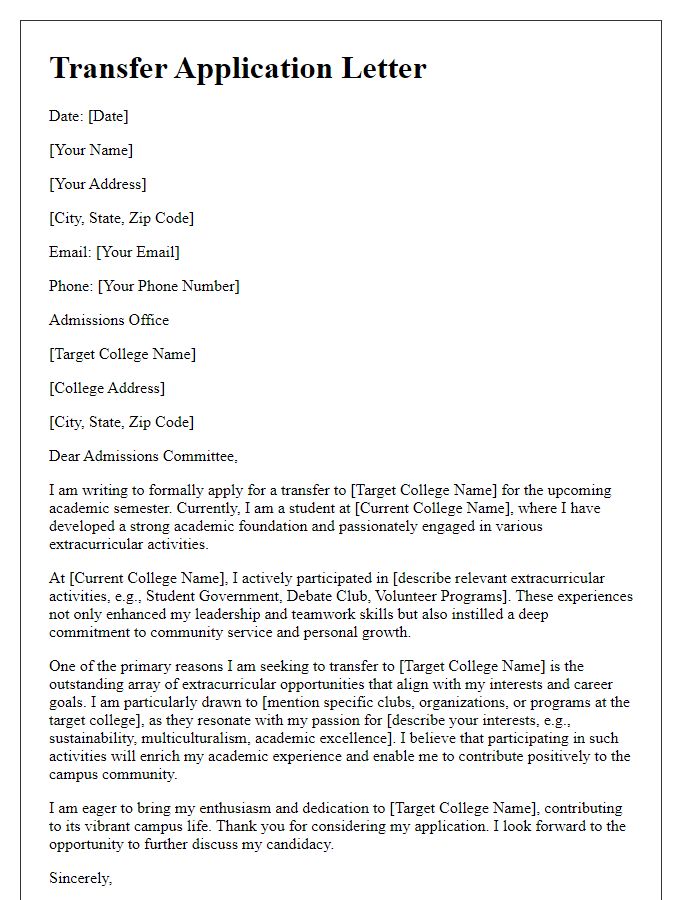

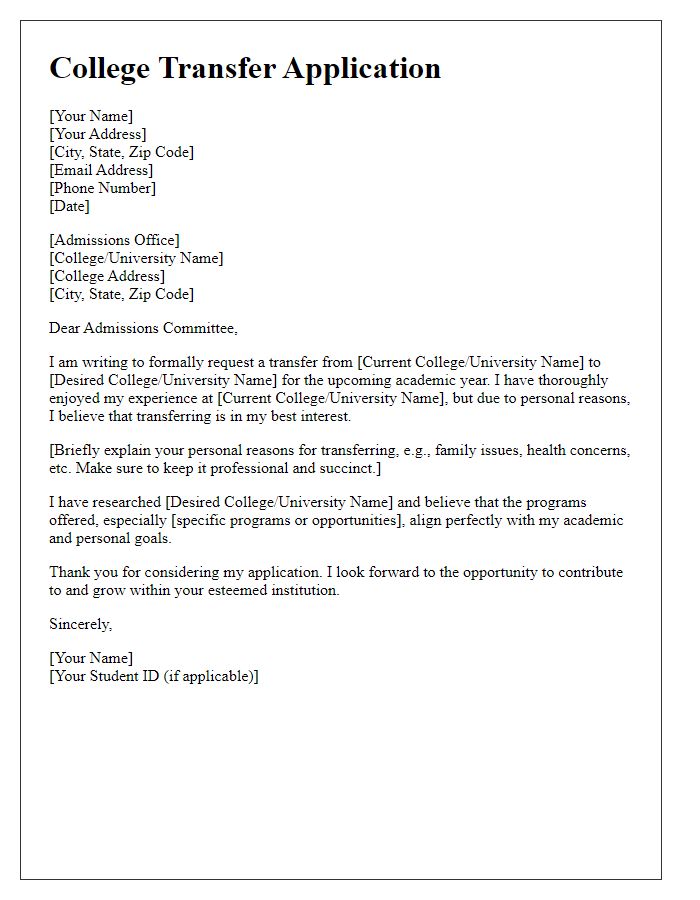
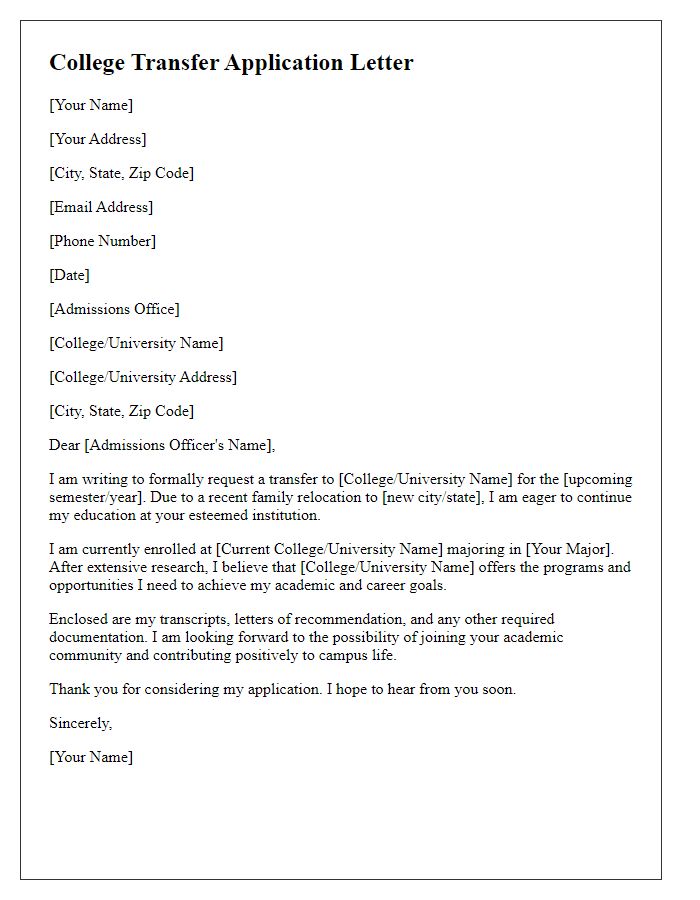
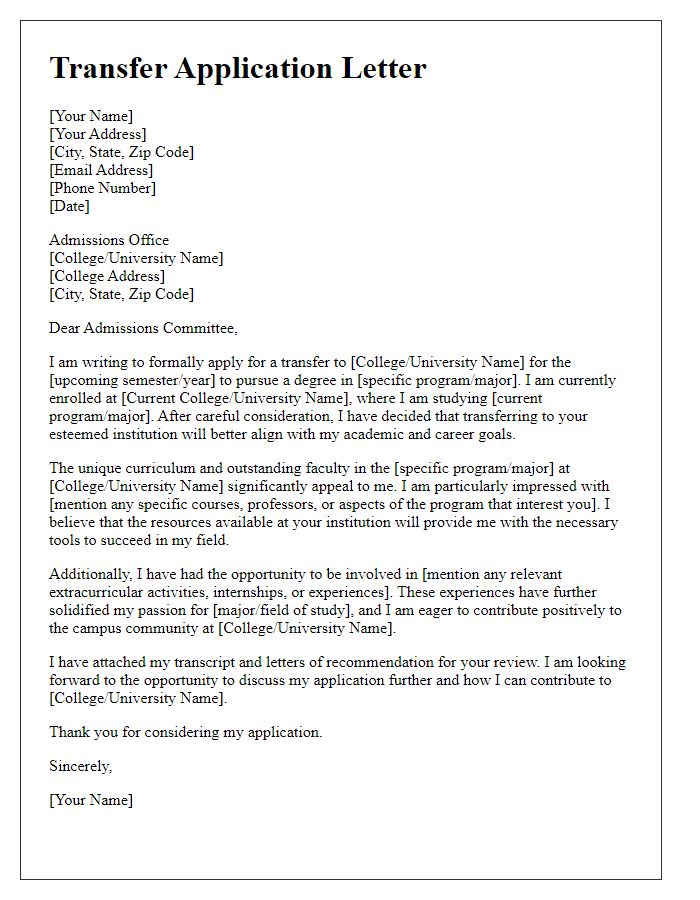
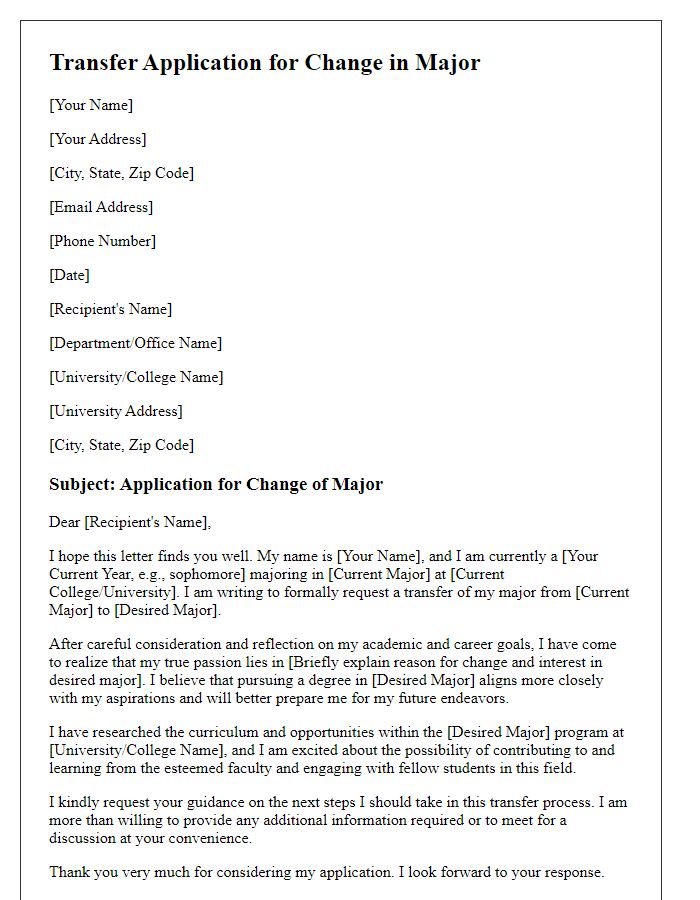
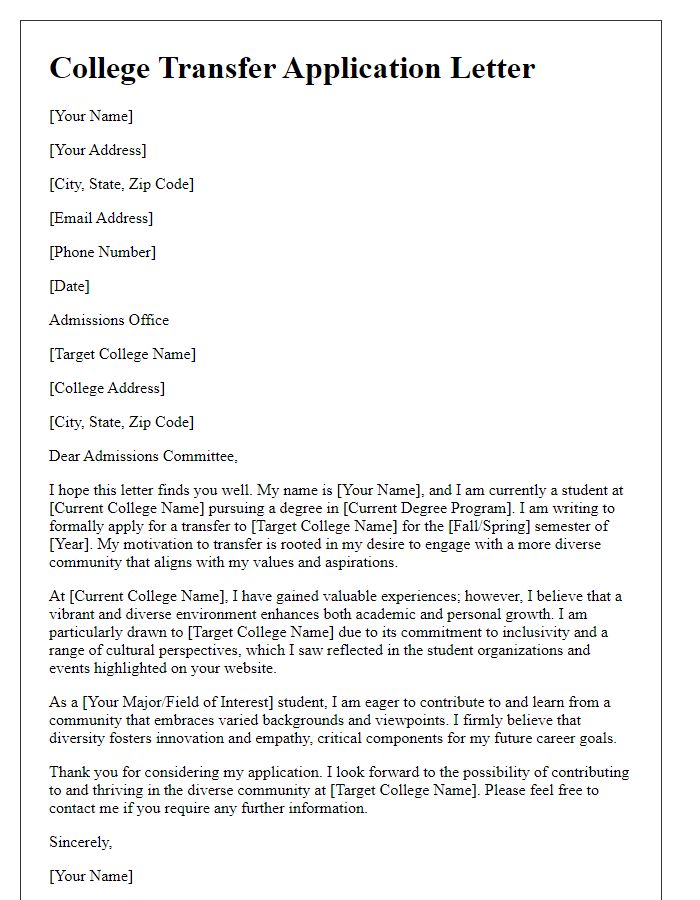


Comments